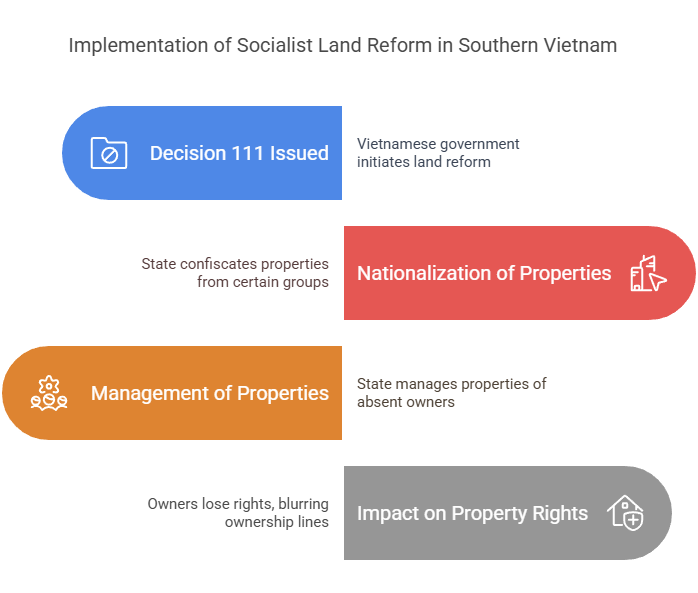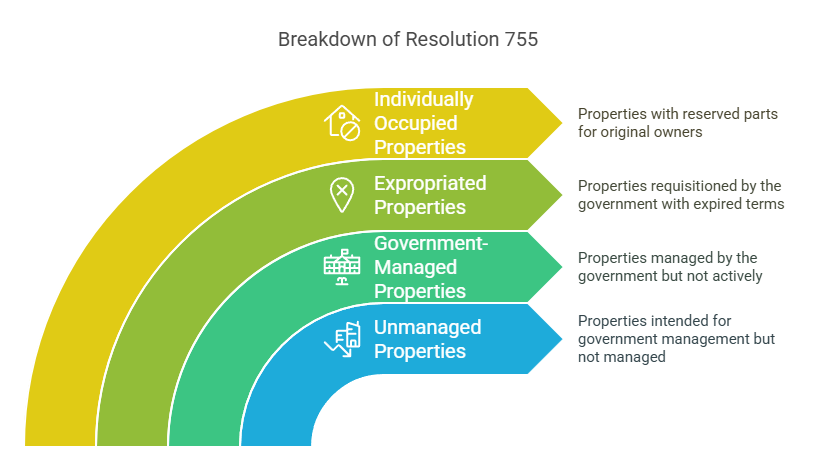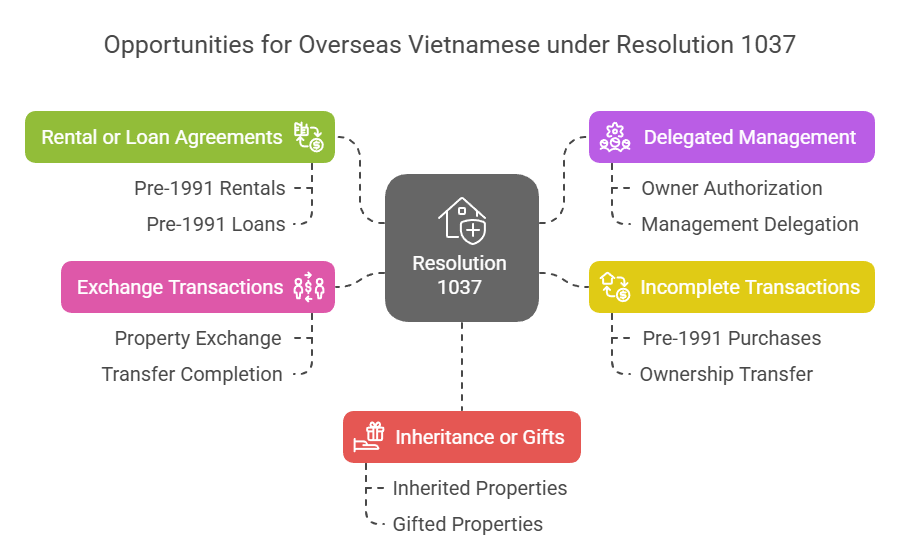
Can Overseas Vietnamese Reclaim Property in Vietnam?
The question of whether overseas Vietnamese can reclaim their property in Vietnam is a complex issue rooted in the country’s historical context. Many individuals and families lost ownership of their assets during the turbulent times of war and subsequent governmental reforms. This article aims to explore the legal rights of overseas Vietnamese regarding the reclamation of land and property that once belonged to them or their families.
Historical Context of Land Reform
On April 14, 1977, the Vietnamese government issued Decision 111, which initiated the “Socialist Land Reform” policy in southern Vietnam. The primary objectives of this reform were to nationalize, confiscate, or manage land and housing belonging to various categories of individuals and organizations. Properties that were nationalized or confiscated by the state became state-owned.
In theory, state management of land and housing should not imply outright ownership; however, in practice, the distinction between “state ownership” and “state management” has blurred. Whether the state confiscated or merely managed a property, the registered owner effectively lost all real rights to it. Here, “management” does not equate to “ownership.” The state’s actions had significant consequences.
Under this reform, properties were often nationalized from those classified as “bourgeois, landlords, political and economic criminals, and reactionaries.” If properties were rented out to individuals outside these classifications, or if they exceeded the actual housing needs of the registered owners, the state would manage them.
The state also managed properties belonging to legal owners who were absent—those who had fled before or during the final days of the war. If these properties were occupied by their close relatives (parents, spouses, and/or children), the state allowed them to stay but forbade any sale of the property.

Categories of State Management
- Properties of Absent Owners: Managed by the state if the original owners fled or were unaccounted for.
- Religious Properties: Managed if not used for worship.
- Properties of Former High-Ranking Officials: Managed by the State.
- Foreign-Owned Properties: Also under state management.
All land and housing subjected to this reform were repurposed for public use, assigned to state organizations or officials, or leased to others.
Rights to Land and Housing Post-Reform
In 1991, the government issued Decision 297, which established that all land and housing managed by the state under the Land Reform would revert to state ownership as of July 1, 1991. This meant that any land and housing still under state management on this date would become state property. “State management” effectively became synonymous with “state ownership,” with no recognition of private ownership claims on those properties.
However, Decision 297 included an exception. While it outlined specific types of land and housing under state management, it acknowledged that the state did not always effectively track every property. Consequently, some properties were overlooked, and as of July 1, 1991, these properties were deemed to be the private property of their actual owners. Importantly, this decision did not address situations involving absent owners who had left Vietnam.
Ownership Rights of Absent Owners
According to Decision 297, homeowners could sell or delegate the management of their properties to others. If a homeowner authorized someone else to manage their property, their ownership would be recognized upon their return to Vietnam. However, if the property was subject to the Land Reform but was overlooked by the state, the owner had to return the property to the state as a condition for leaving, complicating any claims.
For those who left Vietnam illegally (often referred to as “boat people”):
- If Others Occupy the House: The property would be nationalized.
- If Close Relatives Occupy: The state may grant them partial or full ownership based on specific circumstances.
For those who originally owned a house but left unlawfully and later returned to reside in Vietnam, the state agreed to “facilitate their housing situation.”
Legal Framework After the 2004 Land Law
With the enactment of the 2004 Land Law, the National Assembly also adopted Resolution 23, which addressed housing and land under state management. This resolution stipulated that the state would not re-evaluate land management policies issued before July 1, 1991, ensuring that legal procedures for transitioning state-managed land and housing to collective ownership would be carried out.
- Resolution 755
Following Resolution 23, the National Assembly Standing Committee issued Resolution 755, which outlined guidelines for resolving outstanding property issues. Notably, this resolution provided limited opportunities for individuals to reclaim or receive compensation for their properties under specific conditions, including:

1. Properties Not Managed by the Government
Those properties that were supposed to be managed but were not.
2. Government-Managed Properties
Properties under management as of April 17, 2005, when Resolution 755 became effective but were not being actively managed or leased by the state.
3. Expropriated Properties
Properties that were requisitioned by the government for a specified time but that time had lapsed.
4. Properties Under Individual Occupancy
Where part of the property was reserved for the original owner.
These regulations do not specifically address the situation of overseas Vietnamese.
Opportunities for Overseas Vietnamese
On July 27, 2006, the National Assembly Standing Committee approved Resolution 1037, concerning civil transactions related to properties established before July 1991 involving overseas Vietnamese. According to Resolution 1037, overseas Vietnamese can potentially reclaim ownership or the value of their properties in several scenarios:

1. Rental or Loan Agreements
If the property was rented or loaned to someone else before July 1991.
2. Delegated Management
If the owner authorized someone else to manage the property.
3. Incomplete Transactions
If the property was purchased before July 1991, but ownership transfer was not finalized.
4. Exchange Transactions:
If two properties were exchanged but the ownership transfer was not completed.
5. Inheritance or Gifts:
If the property was inherited or gifted from another party.
The term “other parties” encompasses individuals, governmental organizations, or NGOs, with the transactions having occurred before July 1, 1991.
- Required Documentation
To exercise ownership, overseas Vietnamese must comply with specific regulations and have the necessary documents to prove ownership or value of the property. These procedures may include providing documents proving ownership, lease contracts, or documents related to authorization.
- Specific situations
Example 1: Overseas Vietnamese want to reclaim property
Suppose a Vietnamese person left his homeland before April 14, 1977 and brought with him documents proving ownership of his house. Other people who are not relatives are living in that house. This person can request to reclaim his house, but this will depend on the specific situation and current legal regulations.
Example 2: Nationalized Property
If an overseas Vietnamese’s house has been nationalized and is now under state management, the right to reclaim the property may be more difficult. However, if there is evidence that the property was overlooked during the management process, the owner may have a chance to restore ownership.
Example 3: Inheritance
If an overseas Vietnamese inherits property from a relative in the country but is unable to complete the transfer procedure, they may be able to claim ownership of the property based on the provisions of Resolution 1037.
Conclusion
The ability of overseas Vietnamese to reclaim their property in Vietnam involves navigating a complex legal landscape shaped by historical events and subsequent reforms. While current regulations present opportunities for reclaiming property, they also pose significant challenges. Understanding legal frameworks and preparing the necessary documentation is crucial for overseas Vietnamese seeking to assert their ownership rights.
This journey is not only a legal endeavor but also a quest for identity and heritage. Thus, it is imperative for overseas Vietnamese to stay informed about the relevant laws to safeguard their legitimate rights. To learn more, please refer to the article “6 most frequently asked questions about purchasing properties in Vietnam“.



Leave A Comment